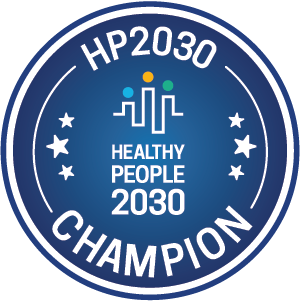Promising Practices
The Promising Practices database informs professionals and community members about documented approaches to improving community health and quality of life.
The ultimate goal is to support the systematic adoption, implementation, and evaluation of successful programs, practices, and policy changes. The database provides carefully reviewed, documented, and ranked practices that range from good ideas to evidence-based practices.
Learn more about the ranking methodology.
Filed under Evidence-Based Practice, Health / Physical Activity, Children, Families
Goal: MYOC aims to improve clinical practice, care, and outcome regarding children's weight.
Filed under Evidence-Based Practice, Health / Wellness & Lifestyle, Men, Racial/Ethnic Minorities
Goal: Reduce unprotected insertive and receptive anal intercourse among HIV-negative black men who have sex with men (MSM) as well as to reduce the number of sex partners, increase consistent condom use during anal intercourse and increase testing for HIV and other sexually transmitted infections (STIs).
Filed under Effective Practice, Community / Transportation, Children, Teens, Urban
Goal: The goal of the Safe Routes to School program is to improve safety and encourage more children to safely walk and bicycle to school. In addition, the programs work toward reducing traffic congestion and improving health and the environment.
Filed under Effective Practice, Health / Health Care Access & Quality
Goal: The goal of this program is to improve health care accessibility and availability for low income, uninsured and underinsured residents of Marion County.
Filed under Effective Practice, Community / Social Environment
Goal: The goal of this program is to promote positive family relationships, help incarcerated fathers learn skills to be active and involved fathers, encourage incarcerated fathers to
provide financial support for their children, facilitate programs for offender families through community partnerships, and provide constructive opportunities for children to participate in special activities with their incarcerated father.
Medical-Legal Partnerships: Investing in Social Services as a Core Strategy for Healthcare (New York City)
Filed under Effective Practice, Health / Health Care Access & Quality, Children, Teens, Adults, Urban
Goal: New York City LegalHealth is a fruitful partnership that operates in 11 clinics of the city's public hospitals. One example is by supporting individuals in tenant-landlord disputes.
Impact: With an average of $225 per case, LegalHealth was able to effectively demand fixes in asthma patients' living conditions. This impact directly resulted in a 90% drop in emergency room visits and hospital admissions for this asthma patient group.
Filed under Evidence-Based Practice, Health / Mental Health & Mental Disorders, Teens, Adults, Urban
Goal: The goals of the Mental Health First Aid course are to: 1) learn to identify risk factors and warning signs for mental health and addiction concerns, 2) utilize evidence-based strategies to help someone in both crisis and non-crisis situations, and 3) become a resource in your community to guide people where to turn for help.
NAMI-DuPage's yearly goal is to complete 70 training courses per year.
Impact: Mental Health First Aid helps community members become aware of signs and symptoms of someone in a mental health crisis and become a resource to mental health and behavioral health programs in their community.
Filed under Effective Practice, Economy / Housing & Homes, Families
Goal: The goal of Mercy Housing is to create and strengthen Healthy Communities Across America.
Filed under Evidence-Based Practice, Health / Children's Health, Children, Teens
Goal: The goals of this program are to establish a single application for school-based youth prevention programs; provide a common language and approach for parent, community, and student health programs; and reinforce prevention messages from a variety of sources.
Impact: Students who received the Michigan Model curriculum had significantly better health outcomes in several areas: social and emotional health, interpersonal skills, aggressive behavior, safety attitudes and skills, physical activity skills, nutrition behavior, drug refusal skills, recent alcohol and tobacco use, and intentions to use alcohol and smoke cigarettes.
Filed under Good Idea, Health / Cancer
Goal: The goal of this project is to educate citizens, health professionals, researchers, and policy makers about cancer in Missouri. Complete, timely, and high-quality data are essential for conducting research and responding to public concerns about cancer incidence in their communities.

